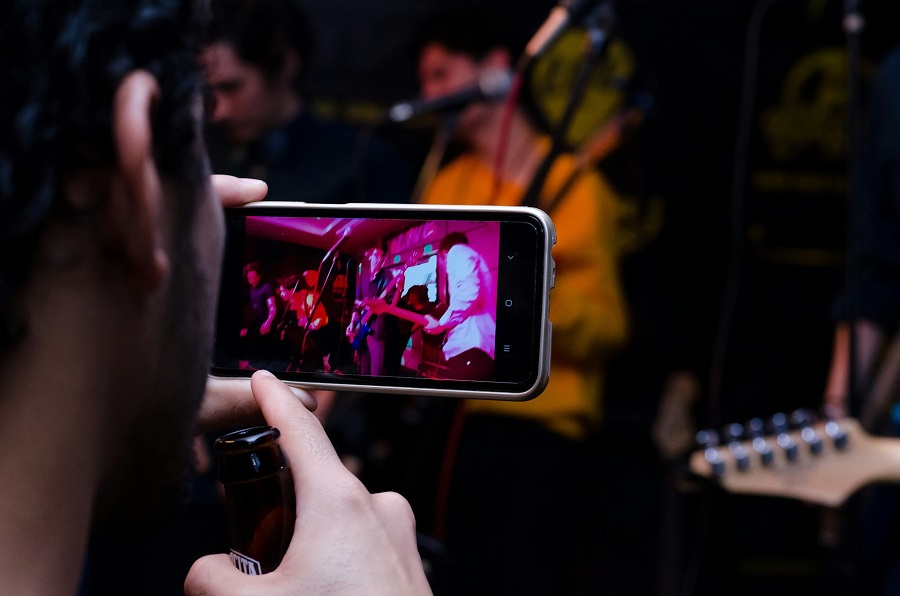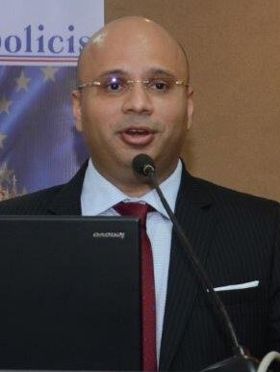Can I sue someone for recording me without my permission in the UK?

In today’s digital age, non-consensual recording has become increasingly common, raising serious privacy concerns for many individuals. Whether you’ve been recorded at work, in public, or in private spaces, the legal implications in the UK can be complex and depend on various factors including location, context, and how the recording is used. Understanding your rights is crucial, from privacy laws and data protection to potential criminal offenses. If you believe you’ve been recorded without consent, consulting with a qualified solicitor is essential to evaluate your legal options and protect your rights effectively.

Key Takeaway: Is it legal to record someone in the UK?
Discover your legal rights in our guide to fighting non-consensual recording in the UK.
Is recording without consent legal?
Under UK law, the legality of recording someone without their permission depends heavily on context. While it’s generally not illegal to record a conversation or voice in public spaces, privacy rights create important restrictions. Recording someone without consent can thus violate multiple laws, including data protection regulations, harassment legislation, and privacy rights, particularly if the recording involves phone calls or takes place in private settings.
Public vs Private spaces: The key distinction lies in the “reasonable expectation of privacy.” Recording in public spaces like streets or parks is generally permitted, though harassment laws still apply. However, recording in private spaces, including homes, changing rooms, or private offices, can be illegal, especially if involving intimate situations or sex-related content. CCTV recording, hidden camera footage, and secret filming in private spaces typically violate privacy laws.
Workplace recordings: An employer must have legitimate reasons for recording employees and must inform them of any surveillance. Workplace monitoring requires transparency and proper policies. Covert recording by employers is rarely justified except in specific circumstances like suspected criminal activity. Employees secretly recording meetings or conversations may face disciplinary action or legal consequences.
Legal exceptions: Some exceptions where non-consensual recording may be permitted include:
- Prevention of crime.
- National security purposes.
- Journalistic activity in the public interest.
- Evidence gathering for legal proceedings.
- Law enforcement with proper authorization.
Types of non-consensual recording
Understanding different recording methods is crucial when assessing potential legal violations. Is it illegal to record someone without their permission? The answer varies based on the recording type and context.
Audio recording
Recording voice or conversation without consent raises significant privacy concerns. While is it illegal to record a conversation depends on context, non-consensual audio recording often violates UK privacy laws, particularly for:
- Confidential meetings.
- Private phone conversations.
- Personal discussions in private spaces.
Video recording
Video surveillance without consent can constitute harassment or voyeurism. Security footage in public spaces is generally permitted, but recording in private areas typically violates privacy rights. Can you record a phone call without consent UK? For video calls, explicit consent is usually required.
CCTV
Surveillance cameras must comply with strict regulations:
- Secure data storage.
- Limited retention period.
- Specified legitimate purpose.
- Registered with ICO if required.
- Clear signage indicating recording.
Hidden cameras
Covert recording devices pose serious legal risks:
- Violate personal privacy.
- May constitute criminal offense.
- Especially severe if in intimate spaces.
- Evidence obtained may be inadmissible.
Suing for non-consensual recording in the UK
Under UK legislation, multiple legal frameworks protect against unauthorized recording through powerful statutes and regulations.
1. Privacy laws
The Human Rights Act 1998 and UK Courts establish:
- Article 8 right to private life.
- Civil remedies for privacy breaches.
- Misuse of private information torts.
- Protection against invasion of privacy.
2. Data protection
GDPR and Data Protection Act 2018 mandate:
- Explicit consent requirements.
- £17.5 million maximum ICO fines.
- Personal data rights enforcement.
- Voice recordings classified as biometric data.
3. Harassment
Protection from Harassment Act 1997 covers:
- Digital stalking.
- Phone surveillance.
- Recording-based intimidation.
- Criminal sanctions up to 10 years.
- Recorded conversations without consent.
4. Employment law
Employment Rights Act 1996 regulates:
- ACAS Code compliance.
- Unfair dismissal protections.
- Employer surveillance duties.
- Workplace monitoring limitations.
- It is illegal to record a conversation at work.
Legal consequences of non-consensual recording
The UK legal system imposes strict penalties for non-consensual recording through both criminal prosecution and civil litigation.
Criminal offenses
Serious breaches under various acts:
- Voyeuristic recording: Maximum 10 years.
- Phone interception: 2-5 years imprisonment.
- Harassment involving voice recording: Unlimited fine.
- Criminal Justice Act 2003: Up to 2 years imprisonment.
Civil remedies
Available legal actions include:
- Compensation claims.
- Data protection violations.
- Conversation privacy breaches.
- Deletion orders for existing footage.
- Injunctions to stop recording/sharing.
Potential penalties
Courts can impose:
- Restraining orders.
- Employer penalties.
- Costs against perpetrator.
- Fines up to £500,000 (ICO).
- Damages for emotional distress.
Building your case: Evidence and time restrictions
Successful legal action requires methodical evidence collection and adherence to strict timelines.
- Required evidence: When someone records your voice or conversation, preserve all digital footprints immediately. Metadata from phone calls, digital timestamps, and device logs provide crucial technical proof. Expert forensic analysis often reveals hidden recording patterns, especially in sophisticated surveillance cases.
- Burden of proof: Courts require clear evidence demonstrating unauthorized recording occurred and caused harm. For employer surveillance cases, proving policy violations strengthens claims significantly. Privacy breach impacts must be quantifiable: emotional distress, professional consequences, or financial losses. Contemporary cases increasingly recognize psychological harm from privacy violations.
- Time Limits: The court clock typically starts ticking from discovery, not the recording date. Criminal complaints face tight 6-month windows, while civil privacy claims allow 6 years for action. Is it illegal to record a conversation claims must be filed within specific timeframes depending on the legal basis.
Filing a complaint: Step-by-step process
Reporting non-consensual recording requires engaging with multiple authorities, each handling different aspects of your case.
- Police reporting: Non-consensual recording of voice or intimate content warrants immediate police attention. Contact 101 for non-emergencies or 999 if recording is ongoing. Police handle criminal aspects, particularly for voyeuristic recording or phone Request a crime reference number, crucial for insurance and civil claims.
- ICO complaints: The Information Commissioner’s Office specifically handles data protection violations. If your employer records without consent or recordings breach GDPR, the ICO can impose substantial fines. Their online portal streamlines privacy violation complaints, typically responding within 30 days.
- Court procedures: Filing court proceedings requires careful preparation. Is it illegal to record a conversation claims often start in County Courts. Initial steps include filing N1 claim forms, paying court fees, and serving defendants. Legal proceedings vary based on claim value and complexity.
Courts award both financial and non-financial compensation for non-consensual recording. Basic damages cover actual losses from voice or conversation misuse. Special damages compensate business losses or career impact. Aggravated damages apply when recording causes severe distress, particularly in intimate privacy cases.
Compensation amounts reflect several factors:
- Distribution extent.
- Mental health impact.
- Employer involvement.
- Professional consequences.
- Nature of phone or video content.
- Duration of unauthorized recording.
How can a solicitor safeguard my rights against illegal recording?
A skilled solicitor provides critical protection when facing non-consensual recording violations in the UK.
Immediate legal protection: Your solicitor will secure evidence and issue cease-and-desist notices. For ongoing voice or conversation recording, emergency injunctions stop further violations. Digital evidence preservation begins immediately.
Strategic legal action: Experienced solicitors determine optimal legal routes:
- Data protection claims.
- Employer liability cases.
- Multi-jurisdictional issues.
- Phone recording complaints.
- Criminal vs civil proceedings.
Long-term rights protection: Your solicitor ensures comprehensive protection through:
- Monitoring compliance.
- Future protection strategies.
- Privacy policy implementation.
- Recording consent frameworks.
- Workplace surveillance agreements.
FAQs
- Can someone film me without my permission on my property? Recording on private property without consent is illegal. Property owners can take legal action under trespassing laws and privacy rights legislation.
- Is recording a conversation a breach of GDPR? Yes, if done without consent. Voice recordings are personal data under GDPR. Valid reasons and proper notification are required.
- Can I record a conversation if I feel threatened UK? Yes, if recording is for personal safety or evidence of criminal behaviour. However, notify authorities immediately and don’t share recordings without legal advice.
- Can you record a meeting without consent? Generally no. Employer meetings require explicit consent. Covert recording may justify disciplinary action and violate workplace privacy
Non-consensual recording in the UK carries serious legal consequences. While the law provides robust protection through privacy, data protection and harassment legislation, acting swiftly is crucial. If you’re a victim, gather evidence immediately and consult a solicitor to protect your rights effectively.
Protect your privacy rights!
Don’t let unauthorized recording violations go unchallenged. Qredible’s network of specialized privacy solicitors offers protection through expert representation.
KEY TAKEAWAYS
- Non-consensual recording in private spaces violates multiple UK laws, including the Human Rights Act 1998 and Data Protection Act 2018, potentially resulting in criminal charges and civil penalties.
- Workplace recording requires explicit employer policies and legitimate business purposes, with violations potentially leading to employment tribunal claims.
- Victims must act within strict time limits: 6 months for criminal complaints, 6 years for civil claims, and 3 months for employment tribunals.
- Evidence collection is crucial. Preserve all digital records, metadata, and witness statements after discovering unauthorized recording.
- Legal remedies include injunctions, compensation for distress, deletion orders, and potential criminal prosecution with fines up to £500,000.
Articles Sources
- lawhive.co.uk - https://lawhive.co.uk/knowledge-hub/litigation/is-it-illegal-to-record-someone-without-their-consent-uk/
- justanswer.co.uk - https://www.justanswer.co.uk/law/mv7vt-happen-someone-recorded-without-consent.html
- dma-law.co.uk - https://www.dma-law.co.uk/is-it-illegal-to-record-conversations/
- rocketlawyer.com - https://www.rocketlawyer.com/gb/en/family-and-personal/family-and-personal-insights/legal-guide/legal-implications-of-recording-videos-without-consent
Do you need a solicitor?
Find a solicitor on Qredible in just a few easy steps
















